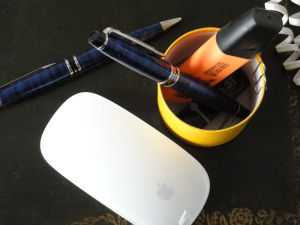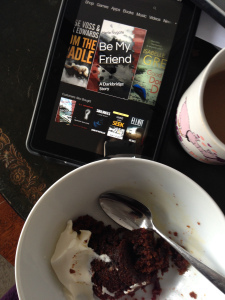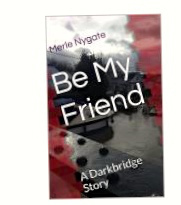Merle Nygate's Blog
August 31, 2015
Getting Better All The time
Why does traditional publishing get so excited about debut novels? I understand that there’s excitement to be had about the next big thing, the new model, latest craze, fresh, original, up to the minute, must have, must read book . . . but it strikes me that unless an author is a one book wonder, the second book will be better than the first and the third book better than the second and so on. For example, Gillian Flynn’s Gone Girl – her third book – is stronger both in concept and execution...
May 31, 2015
Writer’s Block – Myth or Reality?
I recently script edited a talented writer who wrote a terrific story outline, an excellent scene-by-scene breakdown but, when it came to the first draft, instead of flying through it and delivering on the promise of her preparation, she not only missed the deadline but she also didn’t deliver anything like her best work. Worse, she was aware that her writing wasn’t hitting the sweet spot and was having a major panic. What was the problem? A bad case of writers’ block.
I’ve heard writers cla...
April 30, 2015
The Hundred Rule
Were all familiar with the magic of the number 3 whether its three act structure; birth marriage, death; Three Little Pigs, Wishes, Stooges, Bears and so on. There is mysticism about the number 3 and theres even a Latin expression, omni trium perfectum that means everything that comes in threes is perfect. http://en.wikipedia.org/wiki/Rule_of_three_(writing)
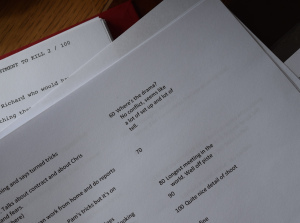
Id like to propose The Hundred Rule. This rule states that the initial hundred pages of a first draft are worse than the combined awful...
February 28, 2015
Taking Stories Apart
Recently I gave a writer some screenwriting advice and like most of my suggestions to other people ��� it���s something I needed to do myself. 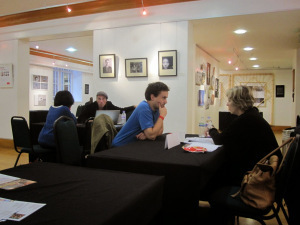 If you admire the writing of any TV show or film or novel, or you hope to work on a particular TV show or write in a certain genre, the way to work out how it���s done is to take it apart. By that, I don���t mean lying on the sofa, eating chocolates and watching the TV show or film. Neither do I mean reading the script or book over a cup of coffee or a...
If you admire the writing of any TV show or film or novel, or you hope to work on a particular TV show or write in a certain genre, the way to work out how it���s done is to take it apart. By that, I don���t mean lying on the sofa, eating chocolates and watching the TV show or film. Neither do I mean reading the script or book over a cup of coffee or a...
December 17, 2014
Schooldays and Amazon
About twenty godzillion years ago I was in school, and by ‘school’ I don’t mean cool kid Buffy/Twilight sexy adolescent. I mean braces, zits and grubby school uniform. The class had to vote for a representative. The duties were probably something to do with collecting the register and making sure there was enough chalk in the classroom. But it was a huge deal, not simply because you got to wear a dark blue enamel badge but because your classmates voted for you.
And my classmates voted for me.
I...
November 25, 2014
Audible Sound Bites
To celebrate the release on Audible and iTunes of Short Season, a Darkbridge story, I have discounted my first Darkbridge novel, Be My Friend for one week.
I also made a perfect Christmas pudding.
If you email me at merle@merlenygate.com, I’ll send you a FREE audiobook of Short Seasonwhich costs $4.27 on Audible and £1.95 on iTunes! (And I’ll even send you a link to the pudding recipe if you’re interested.)
What an offer!
About a month ago, members of the fantastic and wonderful ALLi (Alliance of...
October 15, 2014
Top Tips for Author Interviews on Radio
Yesterday I did my first author interview on Brooklands Radio, in Weybridge, Surrey for Be My Friend, the first in the Darkbridge series of psychological suspense novels.
 I was nervous because although I’ve talked to groups of people, the last time I did a radio interview I was about as engaging as a wet flannel. For the gibbering interview, I was supposed to be talking about teaching screenwriting – something I happen to know a little bit about. But you’d never have guessed it from listening...
I was nervous because although I’ve talked to groups of people, the last time I did a radio interview I was about as engaging as a wet flannel. For the gibbering interview, I was supposed to be talking about teaching screenwriting – something I happen to know a little bit about. But you’d never have guessed it from listening...
October 2, 2014
Be My Friend
Next week, October 10th, my first full novel will be available on Amazon. For a script editor, it’s a little odd to be sitting on the other side of the table, waiting for the feedback, waiting for the tough review, waiting to see whether I have managed what I set out to do – engage the reader.
The novel, Be My Friend, is psychological suspense set in the fictitious world of Darkbridge, an idyllic milieu, where nothing bad should ever happen. Of course, it does and will continue to do so for t...
August 31, 2014
Short Cuts and Dirty Writing Tricks: How to Keep Your Story Outline in Proportion
Most screenwriting writers will have experienced the treatment/outline writing dilemma, whether it’s for a feature, short film, TV episode, audio drama, or any other preliminary blueprint for the final version.
 The process is sometimes: outline (a present tense, 1-3 page outline of the story); treatment (up to 20 pages with all the major beats and character arcs in place); step-outline (the writer’s scene by scene breakdown of what happens in every scene). And then you write the script.
The process is sometimes: outline (a present tense, 1-3 page outline of the story); treatment (up to 20 pages with all the major beats and character arcs in place); step-outline (the writer’s scene by scene breakdown of what happens in every scene). And then you write the script.
At any...
July 31, 2014
How to Structure An Emotional Arc
In a single narrative, it’s satisfying to an audience if the character changes. It doesn’t matter whether the character is a better or worse person, what’s important is that they’re not emotionally static. So the obstacles that you throw at the character, and that they overcome on the route to achieving their tangible goal, changes them.
Often, when a writer has grasped the idea that the character has to change, with so much else to think about, they chuck the emotional shiftin at the end. So...

